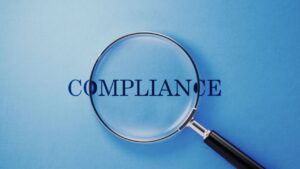A Singapore company is considered dormant if it hasn’t engaged in any accounting transactions during a financial year. This means no revenue, no expenses and no operational activity. Learn more about what a dormant company is.
Maybe you haven’t started operations yet, or perhaps you’ve paused activities. While it might seem like a dormant company doesn’t need much attention, that’s not entirely true. Even a sleeping company has responsibilities to ACRA (Singapore’s business regulator) and IRAS (the tax authority). Ignoring these can lead to penalties.
Here’s a quick guide to what your dormant company in Singapore still needs to do:
1) ACRA’s Annual Filing & Meeting Requirements
Even when inactive, a company must adhere to ACRA’s reporting cycle.
Annual Return (AR) is Mandatory
A Singapore company must file an AR with ACRA every year, regardless of its activity level. For private companies, this must be done within seven months of the company’s Financial Year End (FYE).
Exemption from Financial Statements & Audit
Significant compliance relief is available for certain dormant companies. A company can be exempted from the requirement to prepare financial statements and from a statutory audit if it meets a specific set of criteria, effectively qualifying it as a “private dormant relevant company“. The conditions are:
- The company has been dormant since its formation or since the end of the previous financial year.
- It is not a listed company, nor is it a subsidiary of a listed company.
- It satisfies the “substantial assets test,” meaning its total assets do not exceed S$500,000 at any time during the financial year.
Directors’ Declaration Of Dormancy
To claim the exemption from preparing financial statements, the company’s directors must lodge a formal declaration with ACRA, confirming the company’s dormant status for the relevant period.
Annual General Meeting (AGM)
A dormant company must still hold its AGM as required by the Companies Act, even if it is exempted from preparing and presenting financial statements. However, private companies can choose to dispense with holding AGMs if all members agree.
2) IRAS’s Tax Filing Mandates
The default position for all registered companies in Singapore, including dormant ones, is that they must file an annual Corporate Income Tax Return.
Default Requirement to File
Unless a waiver is granted, a dormant company must file its tax return (Form C-S, C-S (Lite), or C) by the 30 November deadline each year.
Simplified Filing
Recognizing the minimal information required, IRAS provides a simplified “Form for Dormant Company.” This digital form can be completed in minutes via the mytax.iras.gov.sg portal and requires only two essential fields to be filled.
Waiver of Obligation to File
A company can apply to IRAS for a waiver from the annual requirement to file tax returns. This waiver is not granted automatically and is subject to very strict conditions. The company must:
- Be dormant as per the IRAS definition (no business, no income).
- Have filed all required tax returns and financial statements up to its date of business cessation.
- Not own any investments (e.g., shares, properties, fixed deposits). If it does own such assets, it must not derive any income from them.
- Have de-registered for Goods and Services Tax (GST) if it was previously registered.
- Confirm that it does not intend to recommence business within the next two years.
- The application for this waiver must be submitted electronically through the myTax Portal.
3) Essential Corporate Governance
Beyond annual filings, a dormant company must maintain its basic corporate structure and governance.
- Company Secretary: It is a legal requirement for every company, including dormant ones, to appoint a qualified company secretary within six months of incorporation and to retain this position throughout its existence.
- Registered Office: The company must maintain a physical registered office address in Singapore.
- Statutory Registers: The company secretary must maintain the company’s statutory registers, such as the register of members, register of directors, and register of registrable controllers.
Annual Compliance Checklist for a Dormant Company
| Compliance Area | Requirement | Key Considerations |
| ACRA | Annual Return (AR) | Mandatory for all “live” companies. |
| Annual General Meeting (AGM) | Required unless the company has formally dispensed with AGMs. | |
| Financial Statements | Exempted if dormant, unlisted, and total assets are below S$500,000. | |
| IRAS | Corporate Income Tax Return | Mandatory unless a waiver is granted. A simplified “Form for Dormant Company” is available. |
| Governance | Company Secretary | Mandatory |
| Registered Office | Mandatory |
Conclusion
Ultimately, the responsibilities of a director are not diminished during a period of dormancy. It’s important to understand a dormant company’s ongoing obligations to ACRA and IRAS. If in doubt, always seek advice from a corporate service provider or an accountant in Singapore.








